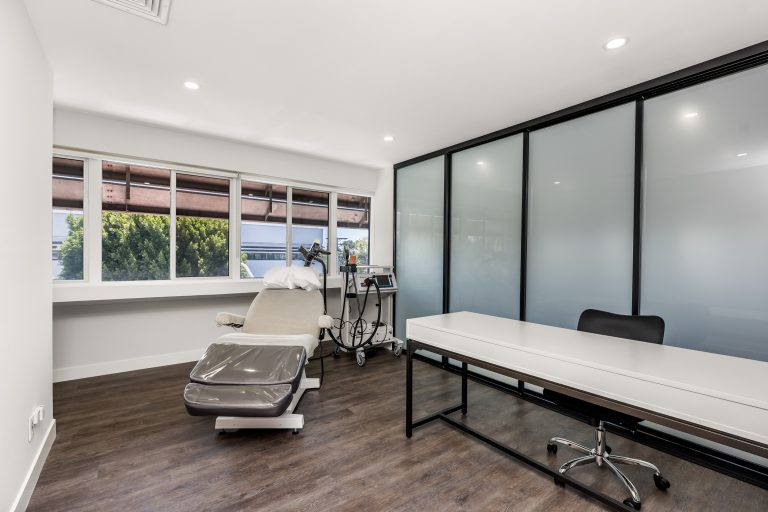Benefits of TMS Therapy: Your Ultimate Guide
Do you or someone you care about suffer from depression or anxiety? Medication and talk therapy are usually the first lines of defense against these conditions. However, these types of traditional treatments may not always give the relief that is needed.
If so, you may be wondering if Transcranial Magnetic Stimulation (TMS) therapy is for you. This new type of brain stimulation therapy is a non-invasive method of treating mental health disorders that have demonstrated positive outcomes.
In this guide, we’ll explore how TMS can completely transform your mental health. We’ll also discuss the advantages of TMS therapy, how it works, and who can benefit from this treatment option to give you an idea of whether this therapy can be good for you or your loved one.
What is Transcranial Magnetic Stimulation (TMS) Therapy?
TMS therapy is a non-invasive treatment that uses a magnetic field to stimulate nerve cells in the brain. While it is a relatively new treatment method, research has shown promising results.
In fact, the FDA has approved TMS as a treatment for depression that has not responded to traditional treatment methods, such as medication and therapy.
How Does TMS Therapy Work?
Repetitive TMS treatments involve placing a small electromagnetic coil on the scalp, which creates a magnetic field and delivers magnetic pulses to the brain.
However, unlike other brain stimulation therapies, the magnetic energy from a TMS machine doesn’t affect all brain regions and does not penetrate deeper than 2 to 3 centimeters. Instead, TMS treatments target a specific area of the brain involved in psychiatric disorders.

At your initial TMS consultation, your doctor will determine the ideal stimulation intensity (often called the motor threshold) and the anatomical target for the magnetic coil.
The anatomical target is typically the left dorsolateral prefrontal cortex (DLPFC), the part of the brain responsible for mood regulation. The magnetic coil generates a magnetic field over this area similar to those produced by a magnetic resonance imaging (MRI) machine.
The magnetic pulse from the TMS machine penetrates the skull and stimulates nerve cells, and increases brain activity in the targeted area. By doing so, the brain releases neurotransmitters like serotonin, norepinephrine, and dopamine.
The idea behind this comes from the theory that depression symptoms are caused by an imbalance of these brain chemicals. By balancing the chemicals necessary for mood control, TMS can improve these depression symptoms and other mental health conditions.
TMS typically involves intensive daily treatment sessions spanning several weeks. Most patients require multiple sessions over the course of several weeks to see the full effects of TMS.
However, each session typically only lasts around 30 to 60 minutes, depending on the device and clinical protocols being used. Patients can usually resume their normal activities right away. Do note that the length of treatment varies per patient and depends on your specific condition and how well you respond to the treatment.
What are the Benefits of TMS Therapy?
Repetitive TMS is a promising alternative to traditional treatment options for various psychiatric disorders, neurological disorders, and chronic pain.
Below are some conditions that this specific brain stimulation therapy can be used:Benefits of TMS for Depression
TMS treatment is primarily used to treat the major depressive disorder (MDD). In particular, TMS is recommended for those whose major depression symptoms haven’t improved even after trying traditional depression treatments like medication and talk therapy.
This so-called treatment-resistant depression is something that affects around 30% of people with depression. According to Harvard Health, approximately 50% to 60% of people with treatment-resistant depression respond well to repetitive TMS treatments.
These results are encouraging, although it is important to keep in mind that, like most treatments for mood disorders, TMS is not a complete cure. There is a high chance that depression symptoms may come back.
With that said, most TMS patients feel better for many months up to a little more than a year after treatment stops. Once symptoms come back, patients may benefit from continuing treatment or a new treatment program.
Benefits of TMS for Anxiety
Similar to depression, people with anxiety often experience increased nerve cell activity in the prefrontal cortex. According to a 2019 study, repetitive TMS may reduce brain activity in this region.
For this reason, TMS can also ease symptoms of anxiety in people with anxiety disorders, including:
- Panic Disorder
- Social Anxiety Disorder
- Generalized Anxiety Disorder
Benefits of TMS for ADHD
Attention-deficit/hyperactivity disorder (ADHD) is a condition that affects someone’s ability to concentrate, feel motivated, and control their behavior. It is a condition that affects a fair number of people, but current pharmacological treatments are often ineffective or intolerable to many.
TMS can help people with ADHD who do not respond well to therapy or medications. Like people with depression, people with ADHD tend to have different functional and structural patterns in their prefrontal cortex.
TMS can help reduce symptoms of ADHD by increasing activity and improving control and attention in clients by stimulating these areas. Clinical trials have also shown that TMS is both safe and effective when used on people with ADHD, alleviating symptoms over a three-week treatment period.
Benefits of TMS for Migraines
A migraine is a condition that causes a moderate or severe headache on one side of the head. During a migraine, your brain is typically hyperexcitable, causing abnormal brainwave activity.
TMS can help with this by stimulating or balancing the electrical activity in your brain. Studies show that TMS can also be an effective preventative therapy for migraines by reducing headache days by up to 50%. All in all, TMS can be used to prevent migraines and reduce the frequency and severity of migraine attacks.
Benefits of TMS for Bipolar Disorder (BD)
TMS can be used to treat the depressive episodes of bipolar disorder. Clinical trials for BD suggest that TMS can be a promising treatment for people with BD, particularly ones who did not respond well to other forms of treatment.
While more research is needed to understand the best frequencies and areas to use and target in relation to BD, there is enough evidence to support its use for this condition.
Benefits of TMS for Autism Spectrum Disorder (ASD)
People with autism spectrum disorder often experience symptoms such as executive dysfunction and problems with interpersonal behavior, which can become a challenge in their daily life.
TMS has been shown to help make ASD-related behavioral issues easier to resolve by targeting specific areas of your cortex. While TMS is not by any means considered a “cure” for ASD, it can help with the social, cognitive, and emotive states of someone with ASD.
Benefits of TMS for Obsessive-Compulsive Disorder (OCD)
TMS has also been shown to be effective in reducing symptoms of OCD, including compulsions and obsessions. OCD is a condition that often shows increased activity between the prefrontal cortex and striatum. This hyperactivity is linked to severe OCD symptoms.
TMS for OCD is used to target and inhibit the activity in these brain areas. Doing so can help reduce OCD symptoms.
FDA has approved the use of TMS for OCD. As with depression, this treatment is recommended if a person hasn’t responded to other treatments.
Benefits of TMS for Post-Traumatic Stress Disorder (PTSD)
TMS can be used to treat PTSD, reducing symptoms such as flashbacks and nightmares. Because the prefrontal cortex is also part of the brain that dictates fear and worry, repetitive TMS can also be effective for PTSD.
In fact, according to 2018 clinical trials, TMS treatment has significant positive effects against PTSD when combined with cognitive processing therapy. More encouraging, the therapeutic effects of this combined treatment method lasted for approximately 6 months.
Benefits of TMS for Schizophrenia
Schizophrenia is a type of psychiatric disorder whose symptoms often involve auditory hallucinations. While not all people with schizophrenia will exhibit auditory hallucinations, about 75% of them do.
TMS can be used to reduce auditory hallucinations by targeting the temporoparietal cortex. This part of the brain is usually involved in language and is often overactive in people with this condition.
Benefits of TMS for Chronic Pain
TMS has been shown to be effective in treating chronic pain, including neuropathic pain and fibromyalgia. According to a 2017 analysis, TMS may help treat these conditions by stimulating the motor cortex and controlling neurotransmitters involved in pain.
At the same time, it is worth noting that depression and chronic pain often go hand in hand. Depression can make chronic pain worse, so treating depression with TMS may help with this condition as well.

Benefits of TMS for Addiction
Addiction treatment specialists also use TMS treatment for people with substance use disorder. In particular, TMS has shown promise in reducing cravings for drugs, nicotine, and alcohol.
While more research is necessary to understand how this treatment can be used for addiction, TMS has been shown to significantly reduce drug cues—or the experiences or sensations that someone with a substance use disorder associates with using.
Because substance abuse and depression often go hand in hand, TMS also has the potential to be used in treating people who may be suffering from depression as a symptom of withdrawal.
Do note that the use of TMS for addiction is not yet FDA-approved. It can be beneficial in conjunction with other forms of addiction treatment, but we still recommend always asking your healthcare provider for their opinion.
Benefits of TMS for Parkinson's Disease
Repetitive TMS has been found to normalize the connections between parts of the brain involved in gait freezing. This makes TMS a viable treatment for Parkinson’s disease, a neurological disorder that causes motor dysfunction, including tremors, balance issues, and freezing of gait.
TMS can be used to reduce motor symptoms of Parkinson’s disease, such as tremors and stiffness.
Benefits of TMS for Alzheimer's Disease
TMS has shown promise in improving cognitive function in patients with Alzheimer’s disease. This disease is a form of dementia known to cause progressive memory loss and cognitive decline.
A 2020 research found that TMS may help people with Alzheimer’s disease by altering the neural connections involved in memory and learning. However, more research is necessary to confirm these results and learn more about how TMS can be used to treat Alzheimer’s.
Benefits of TMS for Stroke Rehabilitation
A stroke is characterized by a blockage or reduction of blood flow to the brain which often results in long-term loss of muscle movement. While more research is necessary, there is some evidence that TMS may be helpful in stroke rehabilitation.
TMS can be used to improve motor function and reduce spasticity in patients recovering from a stroke. The idea is that magnetic impulses can change how the motor cortex works, the part of the brain that controls movement.
TMS may also improve dysphagia or difficulty in swallowing, which is something that affects people who have experienced a stroke.
Advantages of TMS Therapy Compared to Other Forms of Treatment
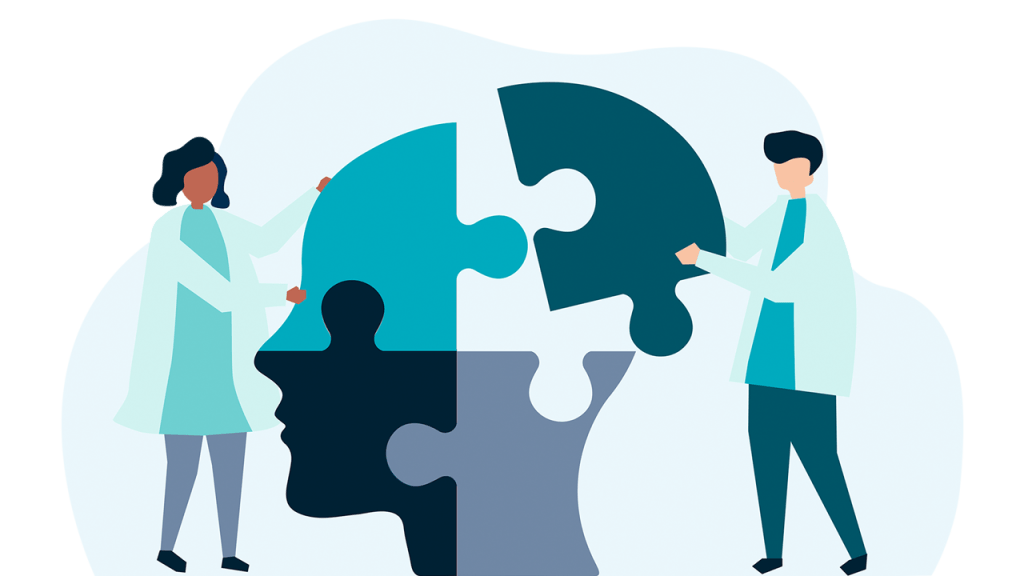
TMS is noninvasive
One of the major advantages of TMS therapy is that it is non-invasive and does not require surgery. Unlike electroconvulsive therapy (ECT), which is a more invasive treatment for depression, TMS therapy does not require general anesthesia or the use of muscle relaxants.
TMS has no systemic side effects
TMS therapy also does not have the same side effects commonly associated with antidepressant medications. Common side effects of antidepressant medications include weight gain, sexual dysfunction, and drowsiness. In contrast, TMS therapy typically only causes mild side effects, such as headache or scalp discomfort, which are temporary and generally go away on their own.
TMS is a targeted treatment
Another advantage of TMS is that it is a targeted treatment, meaning that it can be localized to specific areas of the brain. This makes it a more precise treatment option compared to medications that affect the entire brain. TMS has also been found to work faster than medication, with some patients experiencing significant improvement in symptoms after just a few sessions.
TMS works for patients with treatment-resistant depression
Another major advantage of TMS is that it has been found to be effective for patients who have not responded to other forms of treatment. For example, one study found that TMS can be beneficial for patients with treatment-resistant depression.

Who Can Benefit from Transcranial Magnetic Simulation?
TMS can be beneficial for a wide range of mental health conditions. It is a non-invasive, safe, and effective treatment option for people who have not responded well to traditional forms of therapy or medication. TMS has been approved by the FDA for the treatment of depression, and it is also being explored as a potential treatment for other conditions such as anxiety, PTSD, OCD, and addiction.
People who have struggled with depression for a long time and have not experienced relief from traditional forms of treatment may benefit from TMS. At the same time, individuals who have experienced negative side effects from traditional forms of medication may also benefit from TMS.
If you have been struggling with depression, anxiety, or other conditions, it may be worth discussing TMS therapy with your healthcare provider to determine if it is a suitable treatment option for you.
Who Cannot Have TMS?
While TMS is considered safe and effective against depression, anxiety, and other conditions, it is not suitable for everyone. Several reasons can disqualify someone from having TMS.
Below are possible reasons why you shouldn’t undergo TMS:
Medical Devices
Medical History
If you have a history of seizures, epilepsy, or other conditions/circumstances that affect your brain, you may not be allowed to have TMS treatment.
How Effective is TMS Therapy?
Numerous studies have shown that TMS can be effective for a wide range of mental illnesses. For example, a 2021 systematic review found that TMS was more effective than a placebo in treating a major depressive disorder, with response rates of up to 50% and remission rates of up to 30%.
Another meta-analysis from 2019 found that TMS was also effective in treating obsessive-compulsive disorder, with a response rate of around 50%.
Moreover, TMS has been shown to have a lower risk of side effects compared to other forms of treatment, such as antidepressant medication or electroconvulsive therapy (ECT). This is because TMS is a non-invasive procedure that does not require anesthesia or sedation.
However, it’s important to note that not everyone may respond to TMS, and some people may experience mild side effects such as headaches or scalp pain. Additionally, TMS is not a first-line treatment and is typically used after other forms of treatment have been tried and failed.
What are the Side Effects of Transcranial Magnetic Simulation?
While TMS is a relatively safe and non-invasive procedure, there can be some side effects associated with it. These side effects are generally mild to moderate and temporary in nature, but it’s important to be aware of them before starting treatment.
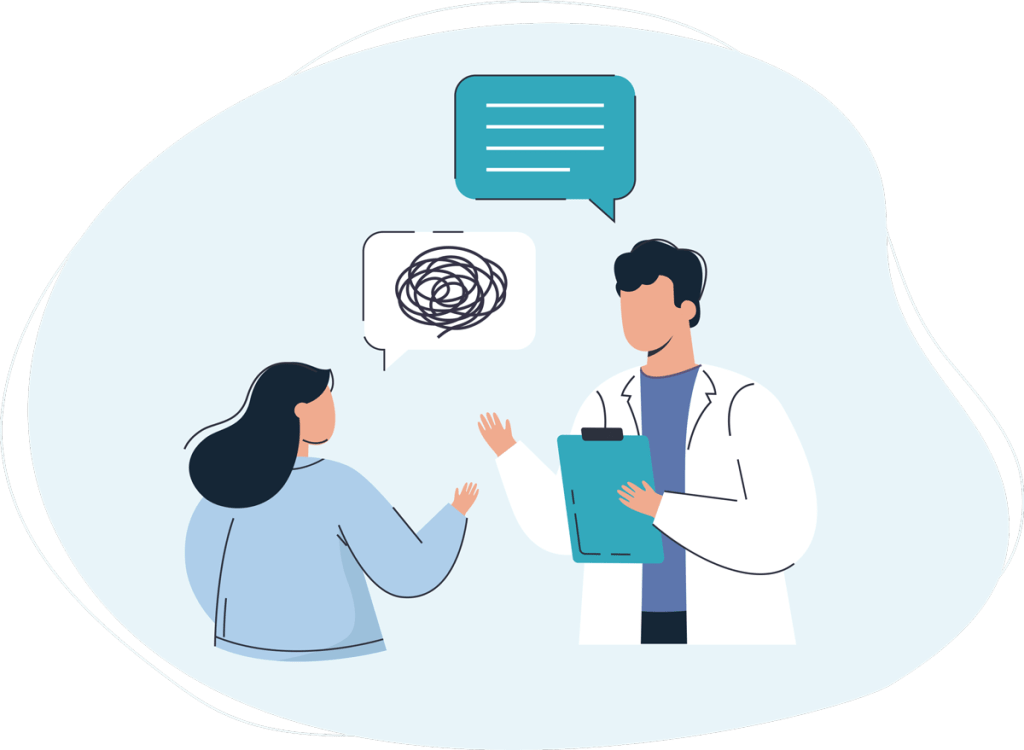
Meanwhile, serious side effects of TMS are rare, but they can occur. These include:
- Seizures
- Hearing loss
- Mania
Keep in mind that these side effects are extremely rare and usually only occur in patients with a medical history of seizures or other neurological conditions.
Common side effects include:
- Scalp discomfort
- Mild pain or tapping sensation at the site of the magnetic stimulation
- Headache
- Lightheadedness
- Nausea
These symptoms usually subside quickly after each session and can be managed with over-the-counter pain medication.
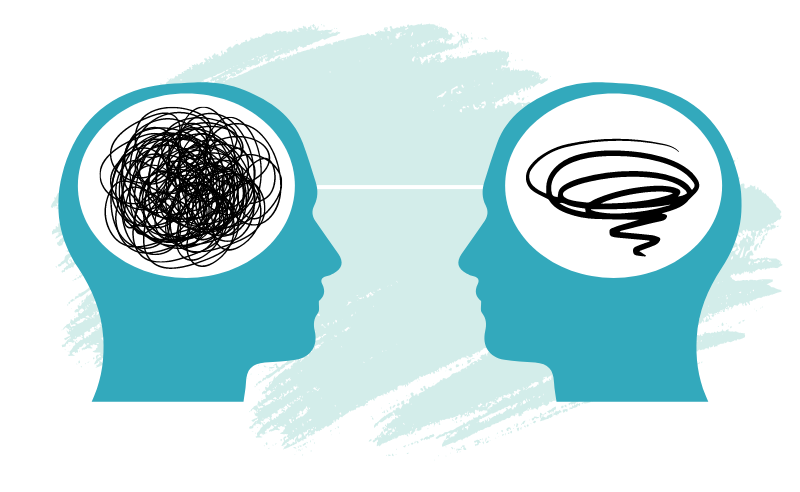
All in all, TMS is considered safe and well-tolerated for most patients, and the benefits of the treatment generally outweigh the risks. However, as with any medical procedure, it’s important to discuss the potential risks and benefits of TMS with your doctor before starting treatment.
When to Consider TMS Therapy?
TMS is a non-invasive and safe treatment option for several conditions. You may want to consider TMS if:
- You have tried medication and other treatments with little or no improvement, or
- You are unable to tolerate the side effects of medication.
If you are experiencing symptoms of depression, anxiety, or any other psychiatric condition, you may want to speak with a healthcare professional to determine if TMS is a viable treatment option for you.
Your healthcare provider can help determine if you are a good candidate for TMS and discuss the potential benefits and risks associated with the treatment.
Ultimately, the decision to undergo TMS should be made in collaboration with your healthcare provider based on your unique situation and needs.
If you are interested in TMS therapy, speak with your healthcare provider to learn more and discuss if it is right for you.
How to Find a Qualified Provider for TMS Treatment?
If you are considering TMS, it is important to find a qualified provider who can ensure that you receive treatment that is safe and effective. Here are some tips on how to find a qualified provider for TMS treatment:
- Check if the provider has the necessary qualifications and experience. TMS is a specialized treatment that requires expertise in administering and monitoring the treatment. Look for providers who are licensed and certified to administer TMS.
- Check the provider’s reviews and ratings online. Watch out for feedback from previous patients to get an idea of their experiences with the provider. You can also ask for recommendations from your primary care physician or healthcare provider.
- Consider the cost of treatment. Check with your insurance provider to see if they cover TMS and what providers are in their network. Some TMS providers may offer financial assistance, insurance coverage, or payment plans, so be sure to ask about these options.
- Make sure that you feel comfortable with the provider and their staff. TMS treatment usually requires multiple sessions, so it’s important to have a good rapport with the provider and feel at ease during the treatment.
By taking these factors into consideration, you can find a qualified provider for TMS treatment who can help you on your journey toward better health.
Having to deal with mental health disorders can be hard, but at Lucid Wellness Center, we’re here to guide you every step of the way! With our expert TMS therapy services, you’ll be feeling revived and happy in no time.
Conclusion
TMS is a noninvasive, FDA-approved treatment that has shown promising results in the treatment of various mental health disorders and chronic or persistent pain.
TMS offers many benefits compared to other forms of treatment, including its low risk of side effects, high success rates, and the ability to target specific areas of the brain.
TMS is effective in treating depression, anxiety, ADHD, migraines, bipolar disorder, autism, OCD, PTSD, schizophrenia, addiction, Parkinson’s disease, Alzheimer’s disease, and stroke rehabilitation. It can be a great option for those who have not responded to traditional treatments or cannot tolerate the medication.
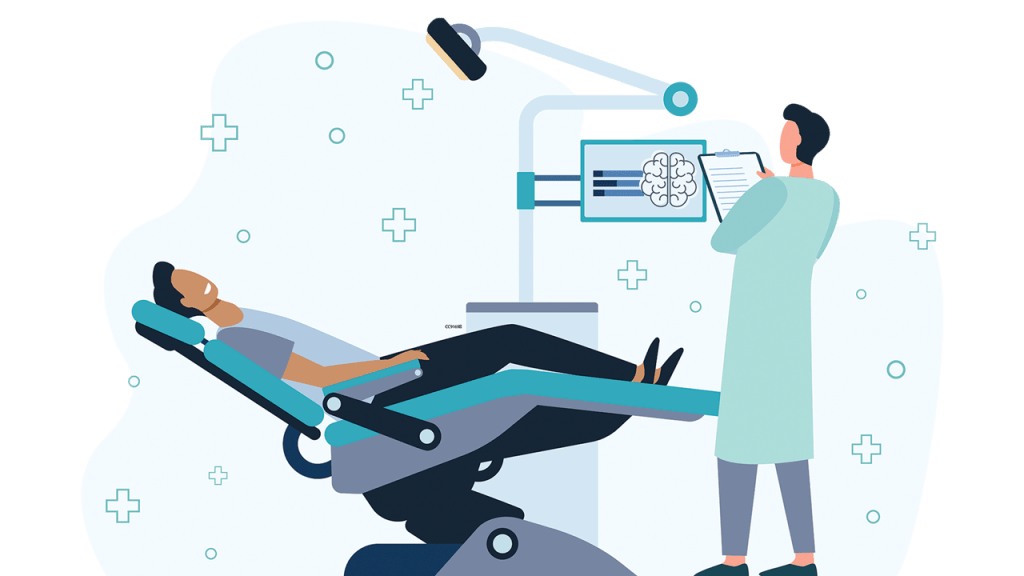
It is worth noting that while TMS is generally safe, some patients may experience mild side effects such as mild headaches or scalp discomfort.
Please consult with a qualified provider before undergoing TMS to ensure that this is the right treatment option for you.
If you are considering TMS, finding a qualified provider who has experience in administering this treatment is vital. Look for a provider licensed and trained in TMS and with a good track record of success.
TMS Therapy at Lucid Wellness Center

If you’re looking for a trusted and experienced TMS provider in Los Angeles, look no further than Lucid Wellness Center. Our clinic is dedicated to helping patients find an effective and safe alternative treatment option for depression and other psychiatric disorders.
At Lucid Wellness Center, we understand that each patient is unique and requires personalized treatment plans that cater to their individual needs. Our medical director, Eric Chaghouri, MD, is a board-certified psychiatrist with extensive experience in TMS, ensuring that you receive the highest level of care possible.
We use state-of-the-art TMS technology to deliver precise and targeted magnetic pulses to the brain, stimulating the prefrontal cortex to regulate mood and reduce symptoms of depression. Our treatment plans are designed to provide long-lasting relief for patients suffering from treatment-resistant depression and other mental illnesses.
In addition to our cutting-edge technology and medical expertise, we also prioritize patient comfort and safety. Our facility is modern, clean, and conveniently located in Los Angeles. We offer same-day and next-day appointments for your convenience, and our dedicated staff provides ongoing care and support before, during, and after treatment.
If you’re tired of struggling with the side effects and limitations of medication, TMS therapy at Lucid Wellness Center may be the right choice for you.
Don’t wait any longer to take control of your mental health. Contact us at (323) 792-2071 or fill out our new patient form to schedule an appointment and experience the difference in mental health care with us at Lucid Wellness Center.
Our resident psychiatrist, Dr. Chaghouri, is one of the best in the field. If you feel like you need help with your mental health or that of a loved one, schedule an appointment today!
Liz Dean
I have done and completed the whole process. I have had a positive result, still seeing little ways of how the treatment has helped. So for me it's a yes, don't knock it till you try it.
Paul Black
Stuart Lyon
Tanisha Lewis
Joshua Bear
Castle Brusa
Frequently Asked Questions
The cost of TMS therapy varies depending on the location, duration, and a number of treatments required. At Lucid Wellness Center, we offer competitive pricing and accept various payment options, including insurance. We can work with you to create a payment plan that suits your budget.
TMS is covered by most insurance companies, including Medicare and many private insurance plans. However, each insurance company has its own list of benefits, requirements to be eligible, and rules about coverage. It's important for patients to check their policy for specifics, including potential plan limitations.
Rest assured that at Lucid Wellness Center, we work with various insurance providers to ensure that our patients receive the care they need without worrying about the cost.
TMS is a noninvasive treatment and does not require surgery, sedation, or anesthesia. This means the entire treatment happens through your skin, so it's typically painless. Most patients report feeling little to no discomfort during TMS treatments. Some people may experience a slight tingling, tapping, or knocking sensation on the scalp where the magnetic coils are placed, but this is generally well-tolerated. However, we do acknowledge that people's pain and discomfort tolerance may vary, so if you do feel pain during the treatment, make sure to let your doctor know right away.
- Alyagon, U., Shahar, H., Hadar, A., Barnea-Ygael, N., Lazarovits, A., Shalev, H., & Zangen, A. (2020). Alleviation of ADHD symptoms by non-invasive right prefrontal stimulation is correlated with EEG activity. NeuroImage. Clinical, 26, 102206. https://doi.org/10.1016/j.nicl.2020.102206
- Biederman J, Spencer T, Wilens T. Evidence-based pharmacotherapy for attention-deficit hyperactivity disorder. Int J Neuropsychopharmacol. 2004 Mar;7(1):77-97. doi: 10.1017/S1461145703003973. Epub 2004 Jan 21. PMID: 14733627.
- Cirillo, P., Gold, A. K., Nardi, A. E., Ornelas, A. C., Nierenberg, A. A., Camprodon, J., & Kinrys, G. (2019). Transcranial magnetic stimulation in anxiety and trauma-related disorders: A systematic review and meta-analysis. Brain and behavior, 9(6), e01284. https://doi.org/10.1002/brb3.1284
- Cocchi, L., Zalesky, A., Nott, Z., Whybird, G., Fitzgerald, P. B., & Breakspear, M. (2018). Transcranial magnetic stimulation in obsessive-compulsive disorder: A focus on network mechanisms and state dependence. NeuroImage. Clinical, 19, 661–674. https://doi.org/10.1016/j.nicl.2018.05.029
- FDA. (2018, August 17). FDA permits marketing of transcranial magnetic stimulation for treatment of obsessive compulsive disorder. U.S. Food and Drug Administration. Retrieved February 23, 2023, from https://www.fda.gov/news-events/press-announcements/fda-permits-marketing-transcranial-magnetic-stimulation-treatment-obsessive-compulsive-disorder
- Fisicaro F, Lanza G, Grasso AA, et al. Repetitive transcranial magnetic stimulation in stroke rehabilitation: review of the current evidence and pitfalls. Therapeutic Advances in Neurological Disorders. 2019;12. doi:10.1177/1756286419878317
- Goudra, B., Shah, D., Balu, G., Gouda, G., Balu, A., Borle, A., & Singh, P. M. (2017). Repetitive Transcranial Magnetic Stimulation in Chronic Pain: A Meta-analysis. Anesthesia, essays and researches, 11(3), 751–757. https://doi.org/10.4103/aer.AER_10_17
- Hart H, Radua J, Nakao T, Mataix-Cols D, Rubia K. Meta-analysis of functional magnetic resonance imaging studies of inhibition and attention in attention-deficit/hyperactivity disorder: exploring task-specific, stimulant medication, and age effects. JAMA Psychiatry. 2013 Feb;70(2):185-98. doi: 10.1001/jamapsychiatry.2013.277. PMID: 23247506.
- Hasler G. (2010). Pathophysiology of depression: do we have any solid evidence of interest to clinicians?. World psychiatry : official journal of the World Psychiatric Association (WPA), 9(3), 155–161. https://doi.org/10.1002/j.2051-5545.2010.tb00298.x
- Jaffe, D.H., Rive, B. & Denee, T.R. The humanistic and economic burden of treatment-resistant depression in Europe: a cross-sectional study. BMC Psychiatry 19, 247 (2019). https://doi.org/10.1186/s12888-019-2222-4
- Janicak, P. G., & Dokucu, M. E. (2015). Transcranial magnetic stimulation for the treatment of major depression. Neuropsychiatric disease and treatment, 11, 1549–1560. https://doi.org/10.2147/NDT.S67477
- Jhanwar, V. G., Bishnoi, R. J., Singh, L., & Jhanwar, M. R. (2011). Utility of repetitive transcranial magnetic stimulation as an augmenting treatment method in treatment-resistant depression. Indian journal of psychiatry, 53(2), 145–148. https://doi.org/10.4103/0019-5545.82543
- Kearney-Ramos, T. E., Dowdle, L. T., Lench, D. H., Mithoefer, O. J., Devries, W. H., George, M. S., Anton, R. F., & Hanlon, C. A. (2018). Transdiagnostic Effects of Ventromedial Prefrontal Cortex Transcranial Magnetic Stimulation on Cue Reactivity. Biological Psychiatry: Cognitive Neuroscience and Neuroimaging, 3(7), 599-609. https://doi.org/10.1016/j.bpsc.2018.03.016
- Kozel FA, Motes MA, Didehbani N, DeLaRosa B, Bass C, Schraufnagel CD, Jones P, Morgan CR, Spence JS, Kraut MA, Hart J Jr. Repetitive TMS to augment cognitive processing therapy in combat veterans of recent conflicts with PTSD: A randomized clinical trial. J Affect Disord. 2018 Mar 15;229:506-514. doi: 10.1016/j.jad.2017.12.046. Epub 2017 Dec 28. PMID: 29351885.
- Marzouk T, Winkelbeiner S, Azizi H, Malhotra A, K, Homan P: Transcranial Magnetic Stimulation for Positive Symptoms in Schizophrenia: A Systematic Review. Neuropsychobiology 2020;79:384-396. doi: 10.1159/000502148
- Mi, TM., Garg, S., Ba, F. et al. Repetitive transcranial magnetic stimulation improves Parkinson’s freezing of gait via normalizing brain connectivity. npj Parkinsons Dis. 6, 16 (2020). https://doi.org/10.1038/s41531-020
- Miron, P., Jodoin, V. D., Lespérance, P., & Blumberger, D. M. (2021). Repetitive transcranial magnetic stimulation for major depressive disorder: Basic principles and future directions. Therapeutic Advances in Psychopharmacology, 11. https://doi.org/10.1177/20451253211042696
- Oberman, L. M., Rotenberg, A., & Pascual-Leone, A. (2015). Use of Transcranial Magnetic Stimulation in Autism Spectrum Disorders. Journal of autism and developmental disorders, 45(2), 524. https://doi.org/10.1007/s10803-013-1960-2
- Starling AJ, Tepper SJ, Marmura MJ, et al. A multicenter, prospective, single-arm, open-label, observational study of sTMS for migraine prevention (ESPOUSE Study). Cephalalgia. 2018;38(6):1038-1048. doi:10.1177/0333102418762525
- Stern, A. P. (2020, October 27). Transcranial magnetic stimulation (TMS): Hope for stubborn depression. Harvard Health Publishing. Retrieved February 26, 2023, from https://www.health.harvard.edu/blog/transcranial-magnetic-stimulation-for-depression-2018022313335.
- Weiler, M., Stieger, K. C., Long, J. M., & Rapp, P. R. (2020). Transcranial Magnetic Stimulation in Alzheimer’s Disease: Are We Ready?. eNeuro, 7(1), ENEURO.0235-19.2019. https://doi.org/10.1523/ENEURO.0235-19.2019
Beverly Hills, CA 90211
For driving directions, click here. Type in your starting address and pick a route. Click the "Details" link underneath the route, then click the phone icon and choose the device or email address where you want to receive the directions.
Treatments are fast and can be done on your lunch break with same day and next day appointments available to fit your busy schedule.
Click here to fill out the new client form and we will call you to schedule an initial consultation or next appointment for TMS therapy at our Los Angeles clinic. You can also reach us sooner by calling (323) 792-2071.


